The second cohort of Catholic Extension Society’s U.S.-Latin American Sisters Exchange Program are in the midst of five years of service and education in the United States. The sisters have risen to the great challenge of the pandemic, providing spiritual care and coordinating essential services to help Latino immigrant communities in this time of great need. The program is supported by the Conrad N. Hilton Foundation.
The following story, reprinted with permission from the May/June 2021 edition of Catholic Herald magazine of the Diocese of Sacramento, features the efforts of three of these extraordinary Catholic sisters. Story and photography by Jason Weinrich.
For those displaced over two years ago from the Camp Fire, COVID-19 was yet another hurdle in a series of disruptions. As the pandemic played out across the world, people in the communities in Butte County came together, often centered around the local Catholic parishes. Dispersed to towns such as Chico, Oroville and Gridley, the Latino survivors of the Camp Fire, in addition to other community members, are now receiving emotional support and vital information about locally available social services, thanks in part to the work of three religious sisters from Mexico.
As part of the Congregation of the Eucharistic Missionaries of the Infant Jesus and Our Lady of Fatima, the trio of sisters is committed to a five-year cultural exchange program where they are serving, learning, and working primarily in Butte County. Sister Zuly Cardenas Carreón, Sister Ana Luisa Vázquez López, and Sister Antonia Sánchez Núñez are from different parts of Mexico: Cuernavaca, Chiapas, and Guanajuato City, respectively.
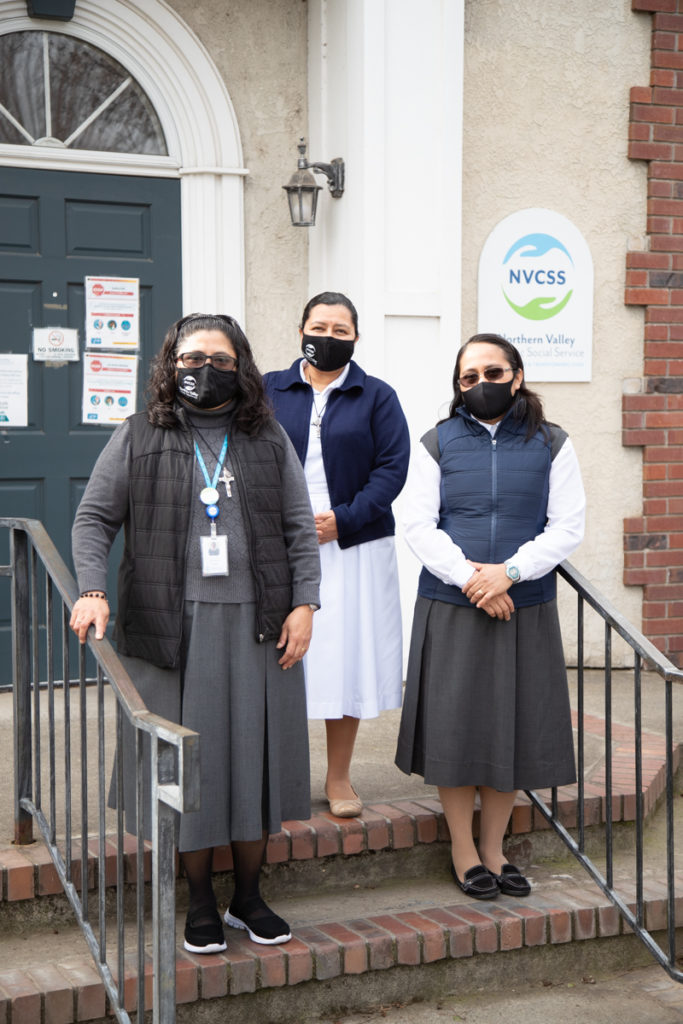
A significant part of their weekly time commitment is to the Promotores Program, as coordinated by Northern Valley Catholic Social Services (NVCSS) for outreach in Chico, Oroville and Paradise.
There are many social services available to residents of Butte County and surrounding counties. However, the knowledge of how to access these programs is often missed by those who need the services most; this can be due in part to cultural or language barriers.
To connect service providers and potential recipients, the Promotores Program provides education for those in need through one-on-one case management or in a group setting. Early intervention in mental health also allows the program to serve as a bridge to more formal mental health services.
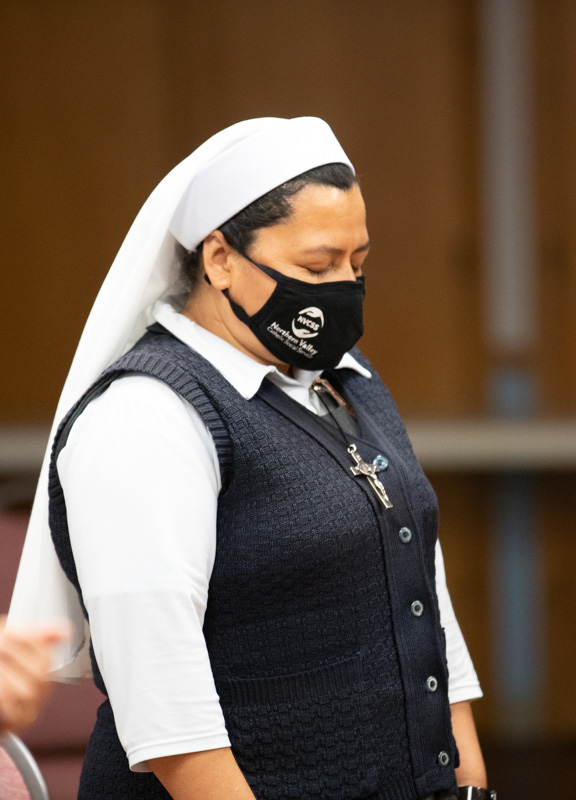
A promotora is a Latino community member who receives specialized training to provide basic health education in the community without being a professional health care worker. While most of their work entails educating target audiences about health issues affecting their community, they also provide guidance in accessing community resources associated with health care.
They serve as liaisons among their community, health professionals, human and social service organizations. Traditionally they have been Latino women, but with more men entering the field, the term “promotores” is increasingly used to be more inclusive.
Norma Servin-Lacy, Promotores Program supervisor, oversees the case management and outreach events throughout the county. She shares the need for open communication and discussion around psychological well-being.
“Mental health can have a stigma within the Latino community. It’s OK to go to the doctor because you have diabetes, but if you’re suffering from any mental issues, it can be frowned upon.” Promotores seeks to remove the cultural stigma and connect community members to the services they may need.
The sisters have started support groups at St. Thomas More Parish in Paradise and St. Thomas the Apostle Parish in Oroville. Attendees include some of the women and children impacted by the Camp Fire, in addition to other members of the community. The topics of discussion include access to health care, mental health services, child care, resiliency, life skills and nutrition.
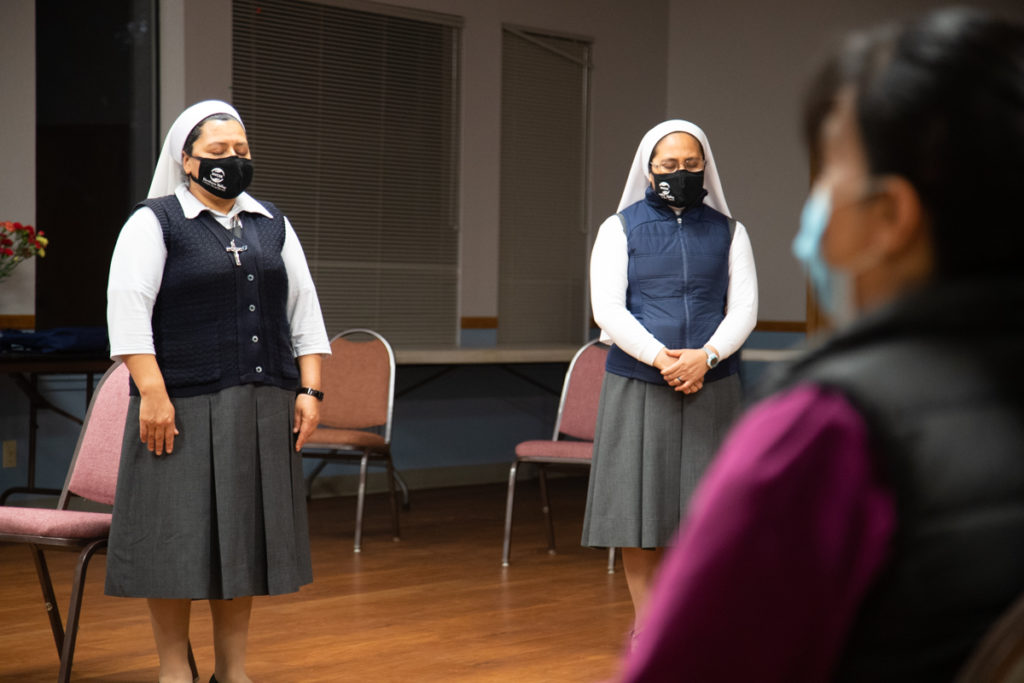
The sisters also participated in the program’s outreach to larger groups and have assisted with food drives and census outreach. The three food drives, which occurred last year, provided more than 550 attendees with food, COVID-related sanitizing supplies, and information on social services. Shared through Spanish-language pamphlets, the social services information provided through the food drive is becoming increasingly more accessible to those in need.
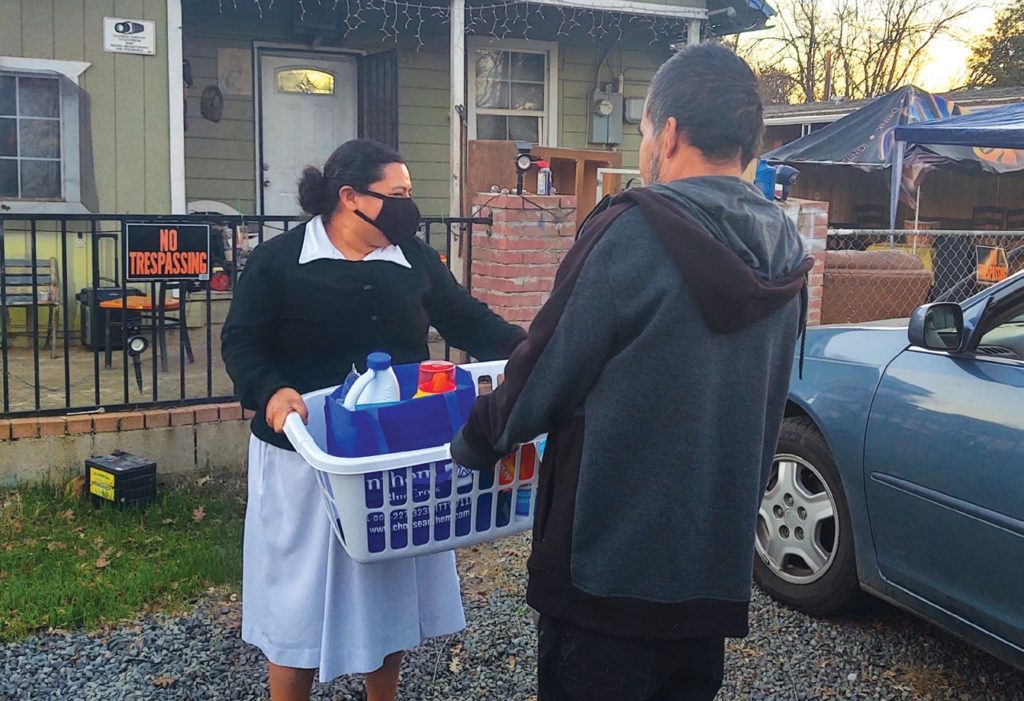
The Promotores Program served more than 300 individuals in 2020 and the need is still growing. Every month new enrollees join the program and more members in the community have the opportunity to come into contact with the sisters.
As the program is contracted through Butte County Behavioral Health, the spiritual side of the sisters’ ministry is not overtly promoted during the program. However, the effect the sisters have on those they come into contact with is long-lasting. Mrs. Gutiérrez, an attendee of the Oroville Women Leaders Group (OWLG), shares her gratitude:
They (the sisters) give me a lot of confidence and security by feeling supported in any area that I need from each of them. We are blessed that we have this program in my community.”
Another program recipient and member of OWLG, Mrs. Gonzalez, shares the impact the sisters had on recent events of her life.
“My husband became sick late last year, and the sisters helped us immensely during that difficult time. They looked after us and helped us during his battle against cancer. After my husband passed in October of last year, the sisters stayed by my side and supported me during my loss. I am very grateful for everything they have done for me. They are like my angels because they encourage me to keep pushing forward.”
The effects of the pandemic have not slowed the volume of clients needing services; in fact, the increase during 2020 surpassed expectations. When asked about the effects of the pandemic on their day-to-day work, the sisters shared their gratefulness to continue to connect with individuals through phone call or video chat services such as Zoom.
While in-person communication is preferred, the sisters have been adaptable with their communication methods by using technology to maintain relationships. The in-person focus groups are currently limited to 10 individuals, according to the guidelines provided by health authorities.
It has been a joy to be a part of this program, especially during this time of great need.”
Sister Zuly Cardenas Carreón
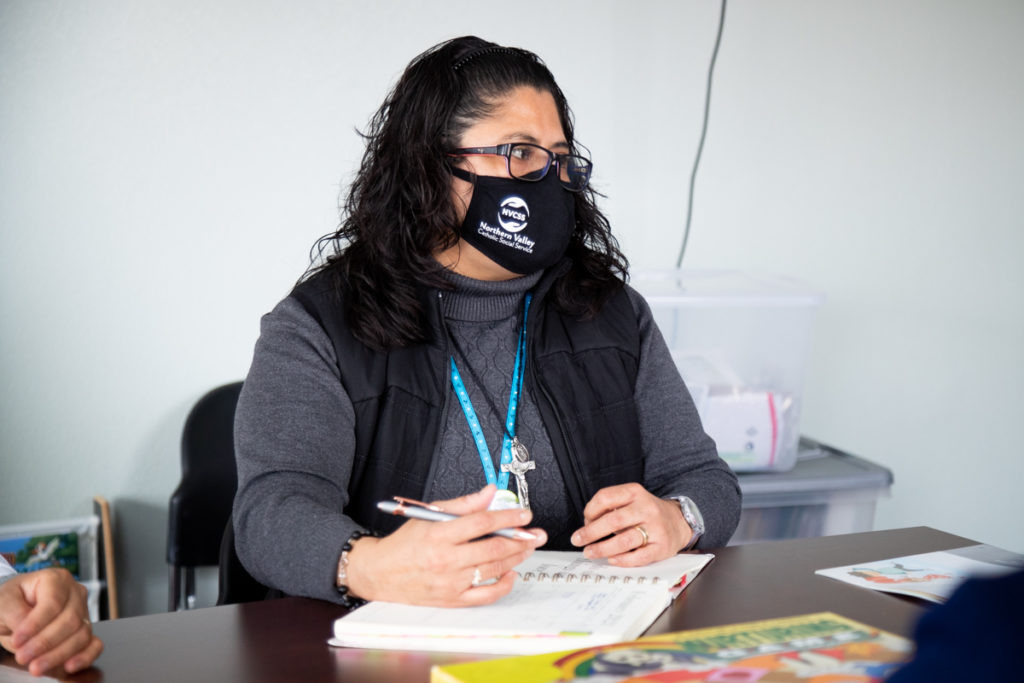
In addition to Promotores, the sisters assist with the work of Catholic Extension Society, which provides economic resources to the communities in Butte County and surrounding areas. Another project, called the Listening Program, allowed for them to work directly with a pastoral group in Corning and with Father Orlando Gomez, pastor of Immaculate Conception Parish.
This program consisted of contacting families during the beginning of the pandemic to assess physical needs such as house supplies as well as spiritual needs. The sisters successfully contacted and helped 45 families.
I’m happy to be able to listen to people and help provide their needs.”
Sister Ana Luisa Vasquez López
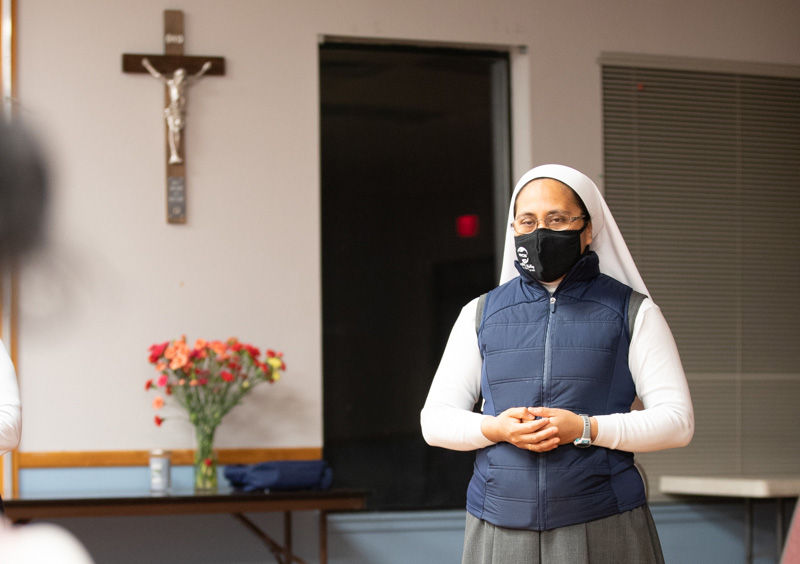
In Yuba City, the sisters direct the Eucharistic holy hour on Thursdays at St. Isidore Parish, in addition to participating in liturgies. They have been active with family support and leading rosaries for funeral events around the community. The sisters also work with patients from Enloe Hospital who have been referred to Promotores, providing spiritual support to patients and their families.
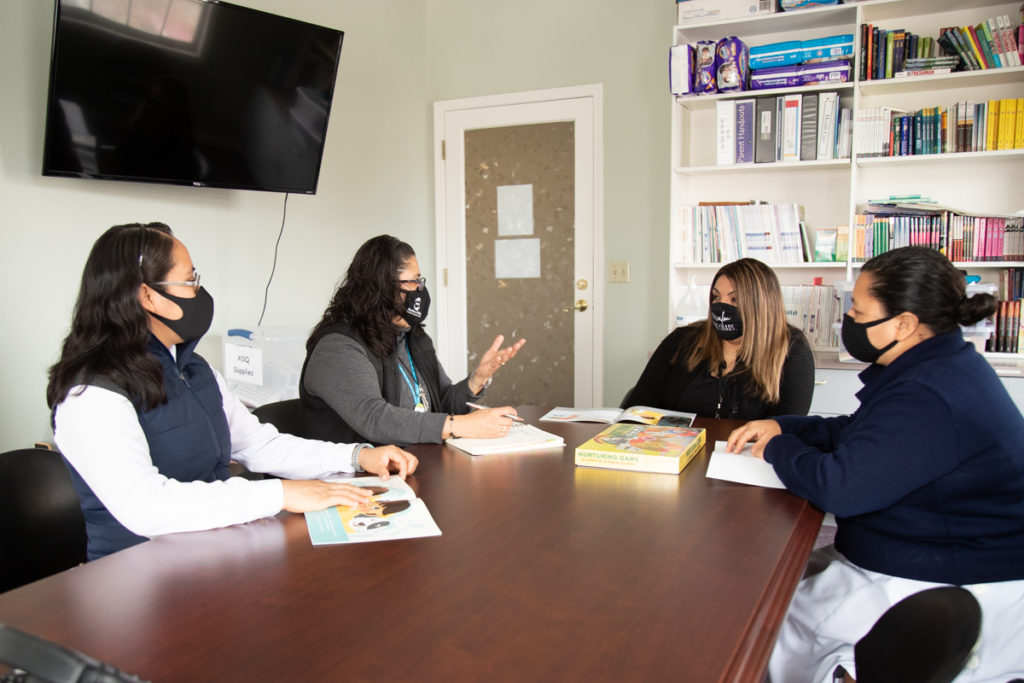
All of these activities are accomplished concurrently with their ongoing pursuit of postsecondary degrees from St. Mary’s University of Minnesota, with Sister Antonia earning her master’s degree and Sisters Zuly and Ana Luisa completing their bachelor’s degrees. They are also learning English during their time in the United States.
With one year completed of the five-year commitment, the sisters will continue their work with the Promotores Program, and continue to serve in local parishes, making an impact on all by being present to the community during a great time of need.
Reprinted with permission from the May/June 2021 issue of Catholic Herald magazine of the Diocese of Sacramento. Story and photography by Jason Weinrich.


